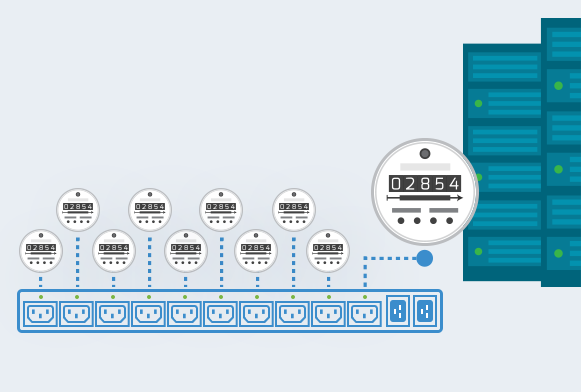Power Meters on Each Individual Outlet
Commercial data processing centers can offer clients better prices on colocation when compared with competitors, as it's possible to measure power consumption for each client device.
Colocation is currently a highly developed data center service. The provider places client equipment in its data center, connects it to a power supply and communication lines, and provides full or partial service. The client expends a certain amount of power, which is obviously not free. Given that in order to account for power usage there must be a meter installed, an individual input meter on the rack, and a system for remote information collection and transmission from the power meters, implementing an individualized accounting of power usage for a client is practical only in cases where entire racks are leased. When a client leases one or a few units, no one bothers with accounting for power usage, though pricing will be based on the maximum capacity of the connected device's power supply.
The possibility of accounting for a client equipment’s actual power consumption enables a data processing center specializing in colocation services to offer clients lower minimum prices, while at the same time increasing its competitive edge on the market without harming profits.
 RPCM allows users to arrange for granular accounting of power usage down to the individual, connected outlet, i.e. data centers can offer better prices to their clients, starting from the first unit sold to the client.
RPCM allows users to arrange for granular accounting of power usage down to the individual, connected outlet, i.e. data centers can offer better prices to their clients, starting from the first unit sold to the client.
In addition, RPCM’s ability to measure power consumption on each outlet makes it possible to locate technical issues relating to accidentally unplugged cables during technical work or microvibrations which over time cause contact to weaken. And it prevents fire hazards thanks to the possibility of setting consumptions limits on each individual outlet, which inhibits devices from exceeding nominal currents for the power supply.

International
Azerbaijan
Belarus
Kazakhstan
Uzbekistan